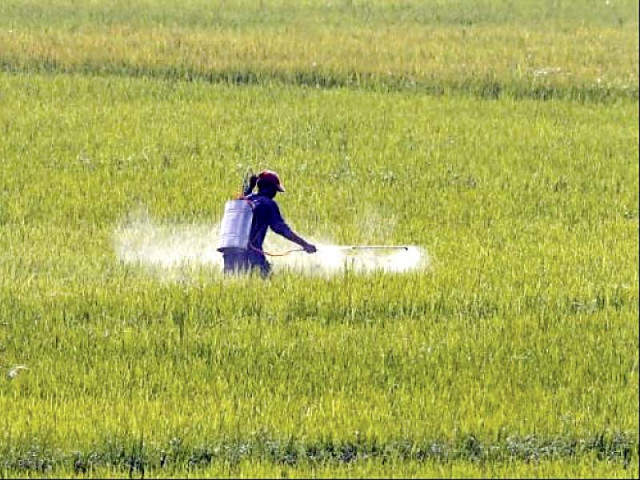Govt likely to withdraw cash subsidy on urea sales
Could impose flat 2% sales tax on all fertiliser products; industry opposes proposals

In order to address the mismatch between input and output taxes, the council asked the government to scrap the sales tax on all inputs including gas, liquefied natural gas, phosphoric acid, steam and power. PHOTO: FILE
At present, the government is giving a subsidy of Rs100 on the sale of each bag of urea to the farmers. In the previous fiscal year 2016-17, the growers got a cash subsidy of Rs156 per bag.
However, fertiliser manufacturers argued that the government had not yet disbursed Rs13 billion to them for 2016-17. They revealed that the industry had also sold fertiliser to the farmers at the subsidised rate during the current fiscal year which amounted to Rs12 billion. But the government has not yet released a single penny, causing strain on the industry’s cash flow.
At present, the government is collecting 5% general sales tax on the sale of urea to the farmers and a plan is under study to reduce the tax rate to a flat 2% for all fertiliser products, which the industry believes will further aggravate the refund situation.
At present, there is a mismatch between input and output taxes. According to the standard principle, taxes are higher on finished products and are lower on raw material, but the case is reverse for the fertiliser industry, which has given birth to the refund problem.
In a letter, the Fertiliser Manufacturers of Pakistan Advisory Council, a representative body of fertiliser producers, has conveyed its concerns to the Ministry of National Food Security and Research secretary, saying it would compound miseries of the industry.
The council pointed out that it had come to know that the government was considering revising the output tax to impose a flat 2% sales tax on all fertiliser products and withdraw the urea subsidy.
Though “it is a welcome step, it will lead to huge financial implications for the industry unless the general sales tax on various inputs like gas and raw material is reduced proportionally,” the council said in the letter.
At present, 10% sales tax is paid on feedstock and 17% on fuel and other goods. Apart from these, 5% sales tax is collected on urea, Rs70 per bag is collected from the farmers while Rs123 per bag is paid by the industry, resulting in a huge burden of refunds.
The fertiliser body pointed out that the difference was greater in the case of di-ammonium phosphate (DAP) which was produced by them with the help of imported raw material that was taxed at the rate of 3%.
It argued that a further reduction in sales tax on output would phenomenally add to the government’s refund liability. Moreover, it may lead to price revision by the industry to offset its impact.
In order to address the mismatch between input and output taxes, the council asked the government to scrap the sales tax on all inputs including gas, liquefied natural gas, phosphoric acid, steam and power for DAP.
At present, the government is receiving 10% sales tax on feedstock (gas supply), which the fertiliser industry demanded should be removed by the government.
“It will help the industry to overcome the cash flow challenge caused by the heavy amount stuck in outstanding refunds and sluggish pace of subsidy disbursement,” it said.
Published in The Express Tribune, April 17th, 2018.
Like Business on Facebook, follow @TribuneBiz on Twitter to stay informed and join in the conversation.



















COMMENTS
Comments are moderated and generally will be posted if they are on-topic and not abusive.
For more information, please see our Comments FAQ